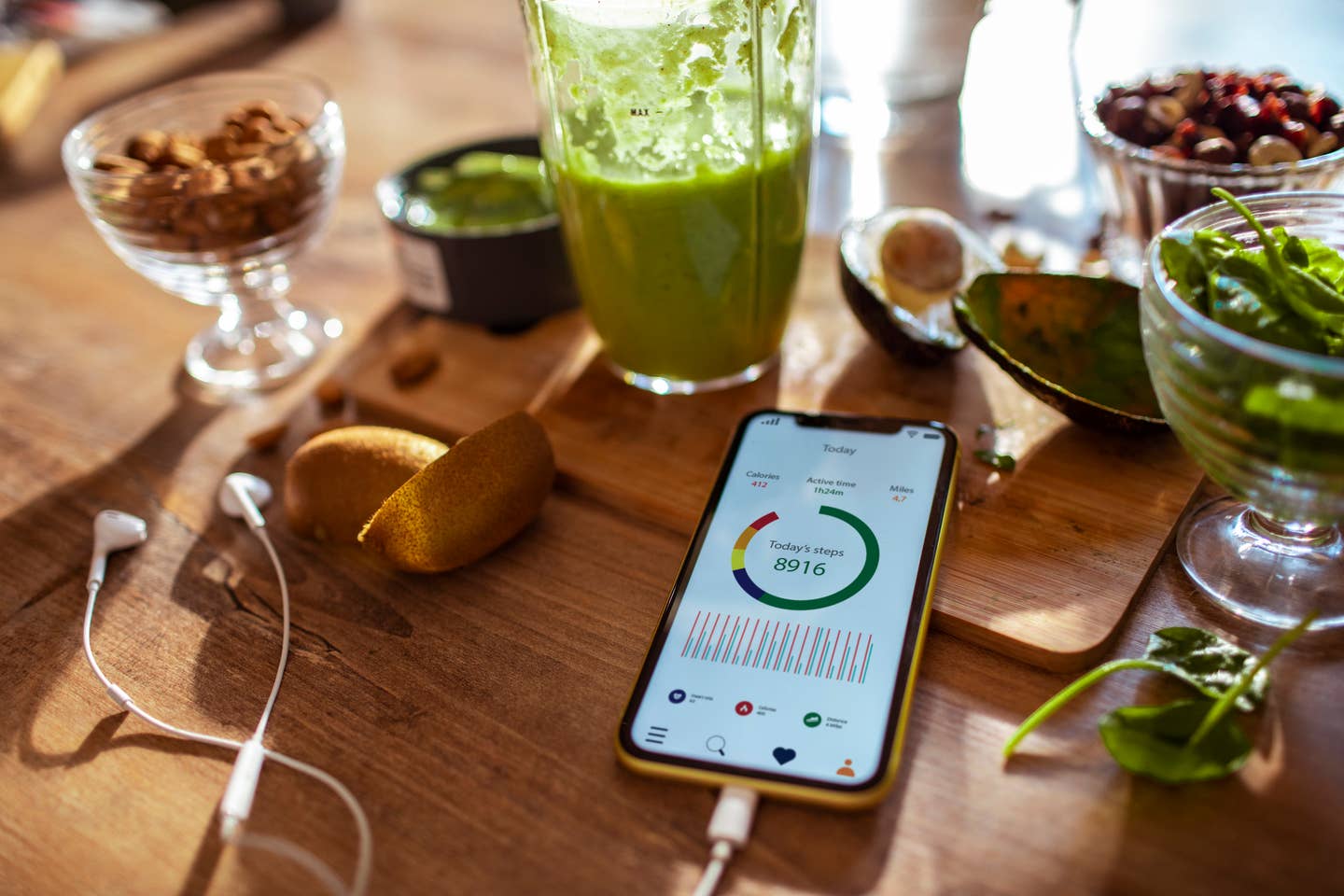
What Do Probiotics Do and Are They Helpful for Losing Weight?
We have all heard about probiotics, found in certain foods and supplements, but have you ever wondered exactly what they do? And does adding probiotics to your diet help you lose weight? It turns out that probiotics have a vital role in the health and wellbeing of our digestive system, starting in the gut and two recent studies support the idea that probiotics help you lose weight if that's a goal. Here is everything to know about probiotics, your gut health and the relationship between "good" bacteria in the body and the ability to shed pounds.
What are probiotics?
Probiotics are healthy bacteria that support the growth of so-called "good bacteria" in your gut that help your body conduct healthy digestion, boost your immune system, promote heart health, and even regulate your mood.
Our body contains a population of bacteria that set up shop in various parts of our body, especially in our gut where there is an astounding number, by some estimates 100 trillion, that help the body digest the food we eat and signal what to do with the byproducts. The entirety of this microbial population makes up what's called our gut microbiome, and there are more of these bacteria than human cells in the body, by a ratio of about 3 to 1, at latest count. The National Institute of Health has declared that keeping these gut buddies healthy can prevent certain conditions including heart disease, autoimmune diseases, and mental health disorders.
Probiotics, whether they come from food sources like fruits and vegetables, or supplements, contain many of the good live bacteria and yeast that live in our body. Consuming them can prevent a buildup of “bad” bacteria (that multiplies when we eat unhealthy food (including red meat, high-fat dairy, and fried foods) and maintain the balance we need to stay healthy.
Probiotics and healthy gut bacteria have been shown in studies to help in the prevention of chronic diseases like heart disease, but there is new research that links taking probiotics with improved body weight, smaller waist size, and reduced body fat. Here is what to know about probiotics and weight loss, and the best ways to get them in your diet.
The link between probiotics and body weight
Although there is still uncertainty on how probiotics affect our body weight, two recent studies indicate that there is a connection. The first study, published in 2018, asks: "Is It Time to Use Probiotics to Prevent or Treat Obesity?" and goes on to examine the link between gut health and obesity or the conditions that lead up to it, including weight gain, such high blood sugar, metabolic syndrome and insulin resistance.
The authors state: "Several studies have shown that in individuals with obesity, the gut microbiota composition can be significantly different from that of lean individuals," and they posit that your gut " bacteria can exert a fundamental role in modulating energy metabolism," and pose "that modifications of gut microbiota composition can be associated with increases or reductions of body weight and body mass index. Based on this evidence, manipulation of the gut microbiota with probiotics has been considered a possible method to prevent and treat obesity."
A subsequent study in 2019 in the British Medical Journal, examined the effect of "oral intake of bacterial probiotics on 15 variables related to obesity, diabetes, and non-alcoholic fatty liver disease." The analysis found that "probiotics consumption improves anthropometric parameters and BMI," as well as improving blood sugar, chronic inflammation, and triglyceride levels in the blood, as well as liver function.
How your gut bacteria regulates metabolism, weight gain and inflammation
First, keeping your gut healthy can help to prevent inflammation. A 2017 article states that chronic low-grade inflammation throughout the body may cause and even progress obesity and metabolic syndrome, various conditions that increase your risk of heart disease, stroke, and diabetes.
A 2020 review also states that beyond inflammation, issues with gut microbiota can cause obesity due to the build-up of lipids (or fats), which lead to metabolic disorders, fatty liver and insulin resistance. That study found that pregnant women given probiotics before delivery had babies that avoided being overweight early in life, and children who were given probiotics also reduced their chances of being overweight, leading the authors to write: "Modulation of intestinal microbiota with probiotics can be a tool to alleviate some obesity-related disorders in children."
Adults who took probiotics for 12 weeks ended up losing weight, but when they stopped taking the probiotics the results were reversed, suggesting that daily probiotics is necessary to keep the gut bacteria in balance.
Our takeaway: Taking a probiotic daily to help keep a healthy balance in the microbiome appears to lower these unwanted side effects that may contribute to weight gain.
What are the best probiotics to take for weight loss, according to research
Many studies have been conducted on the Lactobacillus strains to show a positive effect on weight and body fat. One study from 2013 found that eating yogurt with the Lactobacillus fermentum or Lactobacillus amylovorus strains lowered body fat by 3 to 4 percent over a 6 week period. (These can also be taken in supplement form if you choose to not eat dairy.)
If you are avoiding dairy or eating plant-based, kimchi can be a solution for getting your healthy dose of probiotics. Another 2020 study found that taking the probiotic Lactobacillus sakei – found in fermented foods such as kimchi and some sauerkraut – "might help people with obesity reduce body fat mass without serious side effects."
Taking a probiotic with the strain Lactobacillus gasseri may help to reduce body weight, fat around organs, body mass index (BMI), waist size, and hip circumference according to a 2013 study had 210 participants with higher amounts of belly fat consume 210 grams of fermented milk containing a probiotic for 12 weeks.
The results concluded that that given the fermented milk had almost a 9 percent drop in visceral fat (the belly fat that is so hard to lose) as well as a significant drop in BMI, body fat mass, and waist and hip circumference. The kicker is that once the group stopped consuming the probiotic, the effects wore off after 4 weeks. This indicates that a probiotic will likely need to be continuously consumed in order to maintain the benefits.
Longer research studies with larger participant groups need to be conducted to confirm the promising benefits of taking probiotics for weight loss. The upside is that taking probiotics or eating probiotic-rich food is healthy and can offer a host of health benefits such as heart health and lower blood sugar – and typically doesn’t cause any adverse reactions.
Probiotics appear to even prevent weight gain
When it comes to weight loss, you also have to continue to focus on not regaining the weight back once you lose it. While more research is needed, a 2015 study published in the journal Obesity, found that a probiotic supplement (called VSL#3) taken over a 4 week period reduced weight and fat gain in participants who consumed 1,000 extra calories more than they needed each day. This could indicate that certain probiotic strains may be helpful in preventing weight gain.
According to their website, VSL#3, a commercial multispecies probiotic that contains 8 different strains of bacteria and has a potency of 450 to 900 billion colony forming units (CFU). It contains a variety of Streptococcus, Bifidobacterium, and Lactobacillus bacterias.
Combine probiotics with other weight loss strategies
Probiotics still need a little assistance in order to have them function the best for weight loss. A 2020 review states that combining probiotics with prebiotics, diet, and physical activity can intensify weight loss.
Although probiotics and prebiotics sound similar, they actually serve different functions. While probiotics are the live bacteria found in food, prebiotics are actually food for the bacteria. They come from carbs, mainly fiber-rich options, that are indigestible. As they make their way through the gastrointestinal tract, the beneficial bacteria in our gut eats it.
Some of the common prebiotic plant-based foods include:
- Chicory root
- Garlic
- Leeks
- Savoy cabbage
- Legumes, including lentils and chickpeas
- Bananas
- Oats
- Flaxseeds
How to get probiotics in your diet
While it can be simple to pop a probiotic supplement daily, you’ll be missing out on some tasty foods that can boost your gut health. Add these to your diet for more whole, natural sources of probiotics that come with other nutrients and fiber to help promote gut health.
- Sauerkraut: consists of fermented cabbage that tastes great in salads, sandwiches, or solo.
- Kimchi: another fermented cabbage that contains Asian-based spices and other vegetables.
- Kombucha: a tea that is fermented with a culture of various bacteria and yeast. This beverage has become popular over the years and is easy to find at any grocery store.
- Tempeh: fermented soybeans makes this high in probiotics but also a great protein option for plant-based diets.
- Miso: another fermented soybean option is miso, but this time it’s in paste form. You often see this in Asian-inspired dishes including miso soup.
- Fortified dairy alternatives: many soy and nut-based milks and yogurts contain live bacteria. Just check the label to see if it has Lactobacillus or other strains.
Bottom Line: Probiotics for gut health also promote weight loss, studies show
Current research shows promising outcomes for probiotics and weight loss. While more research needs to be conducted, eating probiotic-rich foods can bring along many other health benefits as well.
More From The Beet






